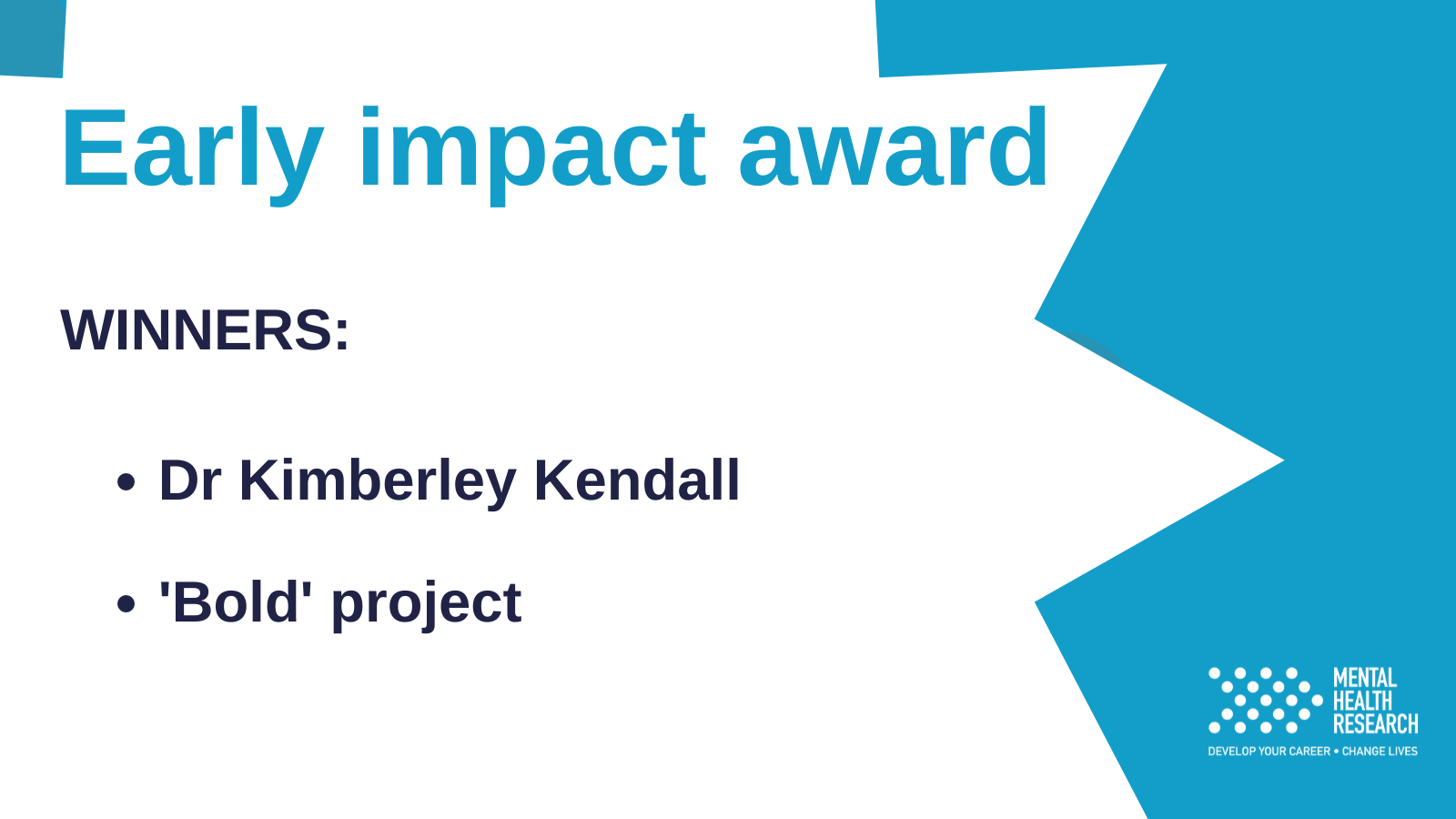
Judges awarded the MHR Incubator Award for early impact in mental health research to an early career researcher whose work has influenced clinical practice, and a project which is boosting the wellbeing of its participants. Congratulations go to Dr Kimberley Kendall for her work in understanding depression and schizophrenia, and the ‘Bold’ project team, whose work is positively impacting the wellbeing of people who are living with dementia.
Dr Kimberley Kendall
Dr Kimberley Kendall (Cardiff) is early in her career as a clinical academic, however she has already shown research excellence, with her publications contributing to changes in understanding around the genetic basis of depression and schizophrenia. Her current work on the ethics of return of genetic results to research participants is already changing practice, and leading to the set-up of new clinics specialising in this area. Where clinicians suspect that individuals may have an underlying genetic reason for their presentation, patients can be referred to the new specialist clinic for joint assessment by clinical genetic and psychiatric professionals, including appropriate counselling about genetic testing. The All Wales Psychiatric Genomics Service has the potential to change the course of care for individuals with complex needs, and assist families to understand the origin of their health difficulties.
“Dr Kendall’s research has a clear benefit to patients, which is influencing practice already. I am impressed by the difference she is making within a field that is complex yet important.” – Public member of judging panel
‘Bold’ social leadership programme
‘Bold‘ (Edinburgh and Queen Margaret universities) is a unique and innovative creative and interactive Social Leadership programme with a co-production aspect that has had considerable positive impact on the wellbeing of the participants – all of whom are people who are living with dementia in different ways. Judges noted that the approaches really highlighted the potential for future positive impact via research involvement too. The project leads had to work quickly to re-design the project to function as an online programme during lockdown, and the extremely positive feedback from participants shows that they achieved this wonderfully well.
“A creative project that has impacted the participants in a very personal way. It feels uplifting and transformative. The evaluation summary was a joy to read, and it’s nice to see the continued involvement of patients and public involvement in her work being expressed in new and empowering ways for those affected by dementia.”
– Public member of judging panel
